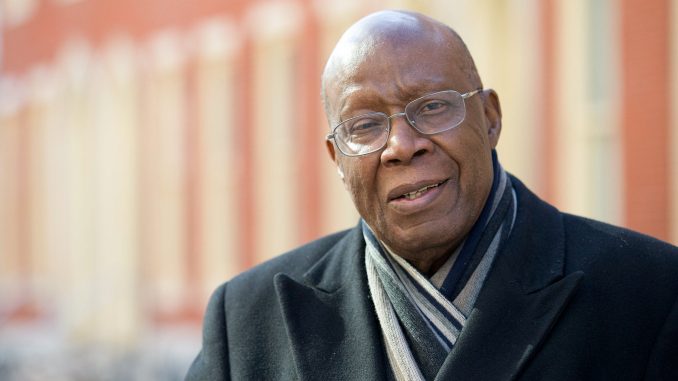
When Johnny Young found out he was headed to the Malagasy Republic, he didn’t even know where to find the country on a map.
“I didn’t know what Malagasy Republic meant,” said Young, a 1966 accounting alumnus who served as a foreign service officer. “I thought initially it was some place in the Philippines.”
But Young was actually destined for an island to the east of continental Africa. His first placement by the State Department would be in the country now known as Madagascar.
Young went on to work at American embassies in 10 other countries, including Qatar, Kenya, Barbados, Jordan and the Netherlands. During his later placements, he served as ambassador in four countries’ American embassies, promoting American policies and informing the United States of relations with that particular foreign government.
Young first became interested in working internationally in 1965 — two years prior to joining the foreign service — while he attended a YMCA-YWCA leadership conference in Beirut, Lebanon.
“I had never traveled anywhere of any note,” he said. “And [I] was meeting people from all over the world and learning in such a short time a little bit about their culture and seeing them in their costumes and their dresses.”
“I made up my mind, whatever I do, I want to do that in the international arena,” he added.
Young first sought to find international work in the accounting division of an American company abroad. But because of discrimination against African Americans at the time, Young said he wasn’t able to do so. He then turned to the federal government to put his accounting background to use.
Young was accepted into the foreign service, which is very selective, he said. He officially joined in 1967, working in finance for the State Department in countries around the world.
His most difficult placement he said was his second assignment in Guinea, a country in west Africa.
“It was difficult because we were living in a totalitarian regime,” Young said. “It was challenging. We couldn’t even find food in the country.”
“The country was very anti-West, particularly anti-American and anti-French,” he added. “I saw contacts I had developed there killed and hanged.”
Young himself was even temporarily imprisoned in 1971 while in the country for insulting “the dignity of the government of Guinea,” after a verbal run-in with Guinean armed guards. The guards had trespassed by entering an American-owned apartment, and when Young told them to leave, they arrested him. But the American ambassador in Guinea was able to get Young released.
“It was very troublesome,” Young said. “But we came out of it alive, well and more experienced.”
After nearly 40 years of traveling the world, Young retired from the foreign service in 2005, but he continued to work on international issues.
In 2005, he joined the U.S. Conference of Catholic Bishops, working as the executive director in the Office of Migration and Refugee Services.
“You can see immediately the impact of what you’re doing if you’ve ever met a refugee who has come your way,” Young said. “We offer protection and hope to people who have literally been through hell.”
Jim Kuh, associate director for program development in USCCB’s Office of Migration and Refugee Services, worked in a former position under Young when he was executive director.
“[Young] understands the international scene, which is such an important part of our work and the connections on the ground,” Kuh said.
Young took delegation trips while at USCCB to regions of the world that have significant populations of refugees fleeing the country. He would then form reports with recommendations for members of Congress.
“It really did help move the needle oftentimes when it came to shedding the spotlight on an area, where there was a particularly protracted refugee situation in the world, where long-standing refugees were being basically forgotten,” Kuh said.
One such delegation trip was to Bangladesh. There, the Rohingya people, a persecuted Muslim minority, were being threatened with return to their native country, Myanmar.
“They languished for many, many years,” Kuh said. “It wasn’t too long after that that we started to see a flow of Rohingya refugees, and I attribute a lot of that to Johnny’s efforts.”
Young worked at USCCB until 2015 when he officially retired. But he stays involved with international issues by teaching English as a second language part-time and helping people who have green cards prepare for their civics test to become citizens.
Young warned against negative sentiments toward outsiders, like refugees and undocumented immigrants in recent national discourse.
“I am really very concerned about where we’re going in this country in terms of how we’re going to treat refugees and how we’re going to treat people who are here in an undocumented status,” Young said. “We’re a country that has always been known for our humane treatment of persons who are basically at the bottom of the list and who have had certain difficulties in their lives.”
“We have given them hope.”
Jenny Roberts can be reached at jennifer.roberts@temple.edu or on Twitter @jennyroberts511.


Be the first to comment